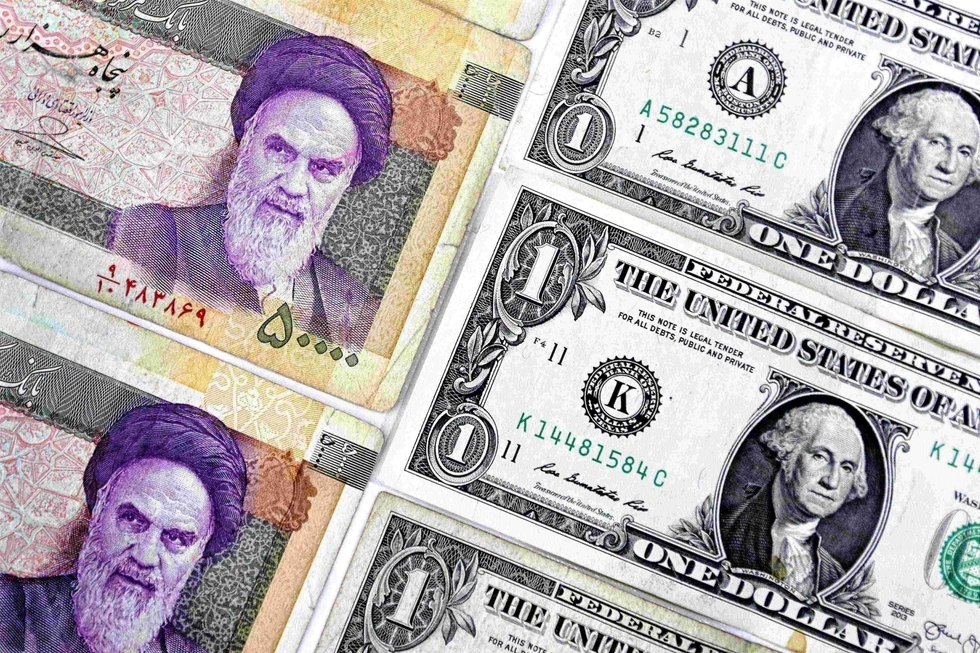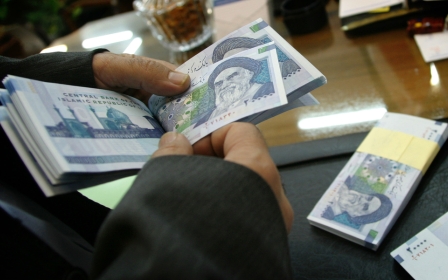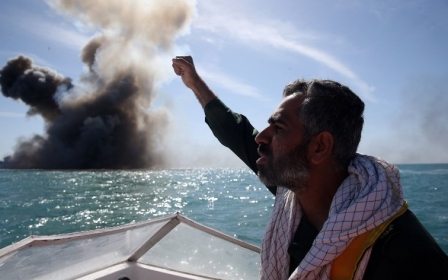Iran currency extends record decline as US sanctions approach

Iran's currency hit a new record low on Sunday, dropping past 100,000 rials to the US dollar as Iranians brace for 7 August, when Washington is due to reimpose a first raft of economic sanctions.
In May, the United States pulled out of a 2015 deal between world powers and Tehran under which international sanctions were lifted in return for curbs on its nuclear programme.
Washington decided to reimpose sanctions upon its withdrawal, accusing Iran of posing a security threat. It has told countries they must halt imports of Iranian oil from 4 November or face US financial measures.
On Sunday, the rial plunged to 112,000 on the unofficial market, down from about 97,500 rials on Saturday, according to foreign exchange website Bonbast.com. Other websites said the dollar was exchanged between 108,500 and 116,000 rials.
That stunning 12.5 percent one-day plunge has pushed the rial into a classic death spiral, according to Forbes writer Steve Hanke. The last time the rial was in a grip of such a spiral was back in September 2012.
The rial has lost about half of its value since April amid a weak economy, financial difficulties at local banks and a heavy demand for dollars among Iranians who fear the effects of sanctions.
With the collapse of the rial’s value against the US dollar, Iran’s implied annual inflation rate has surged to 203 percent, Forbes reported. That is almost twenty times higher than the official inflation rate of 10.2 percent.
Since Trump pulled the US from the nuclear accord in May, Iran’s currency has hit record lows and foreign companies including Peugeot parent PSA Group and Total SA have been scaling back operations, Bloomberg reported. What remains are structural weaknesses in Iran’s economy compounded by embargoes, corruption and cronyism over the decades. Banks are crippled by bad loans amid years of poor regulation.
The central bank blamed "enemies" for the fall of the currency and a rapid rise in the prices of gold coins and the judiciary said 29 people had been arrested on charges that carry the death penalty.
"The recent developments in the foreign exchange and gold markets are largely due to a conspiracy by enemies with the aim of exacerbating economic problems and causing public anxiety," the central bank said in a statement read on state television.
Judiciary spokesman Gholamhossein Mohseni Ejei told state television: "Twenty-nine people have been arrested for economic disruption and will be soon put on trial ... More may be arrested tonight and tomorrow."
"Many of them face the charge of 'spreading corruption on earth'," Ejei said, referring to a capital offence under Iran's Islamic laws.
In addition to the currency decline, the expected return of sanctions has triggered street protests, including by bazaar traders usually loyal to the Islamist rulers, and a public outcry over alleged profiteering and corruption.
On Saturday, Ejei said 18 people had been arrested over alleged profiteering from foreign exchange dealings and the illegal importing of luxury cars.
US President Donald Trump has called the nuclear agreement one of the worst deals ever negotiated, but in a bid to salvage the accord, Iran’s European partners are preparing a package of economic measures.
Still, France said this month it was unlikely European powers could put the package together before November.
On 7 August, Washington will reimpose sanctions on Iran's purchase of US dollars, its trade in gold and precious metals and its dealings with metals, coal and industrial-related software.
Sanctions also will be reapplied to US imports of Iranian carpets and foodstuffs and on certain related financial transactions.
Iran’s oil exports could fall by as much as two-thirds by this year because of the sanctions, straining oil markets amid supply outages elsewhere.
New MEE newsletter: Jerusalem Dispatch
Sign up to get the latest insights and analysis on Israel-Palestine, alongside Turkey Unpacked and other MEE newsletters
Middle East Eye delivers independent and unrivalled coverage and analysis of the Middle East, North Africa and beyond. To learn more about republishing this content and the associated fees, please fill out this form. More about MEE can be found here.



